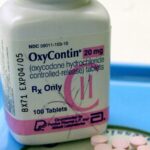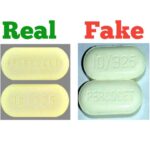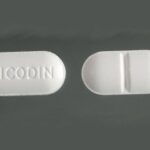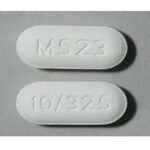What Are the Signs of Addiction to Percocet?

Percocet (oxycodone and acetaminophen) is a combination drug consisting of an opioid and a pain reliever and fever reducer (analgesic and antipyretic) used for the management of moderate to severe pain, usually for an extended time period. Percocet is available in generic form.
Percocet is a strong pain reliever most often prescribed for intense, short-term pain felt after surgery or trauma, but it is also sometimes used for patients with severe chronic pain. Percocet is often seen as a safer way to get high because it is legal to purchase (it is available with a prescription).
However, Percocet is still widely abused for its narcotic effect. A high enough dose can result in a sense of euphoria similar to that experienced by heroin users. Abuse of Percocet can lead to addiction to Percocet or to something harder.
How addictive is Percocet when abused?
The abuse of prescription medications has been on the rise due to increased availability and the belief that these drugs are safer to abuse than illicit intoxicants. However, prescription opioids like Percocet can be just as addictive as illegal drugs and have the potential for overdose. In fact, the Canadian Medical Association Journal reported in 2009 that deaths related to oxycodone in Ontario increased fivefold between 1991 and 2004.
This rise in abuse and deaths led governments to restrict prescriptions of Percocet. Tests were developed to detect the presence of the drug in urine, saliva, and hair follicles. These may be used in addiction treatment centers to detect relapse or by certain employers in various occupations.
What are the signs and symptoms of Percocet addiction?
The following are descriptions of each of the 11 signs and symptoms of addiction to Percocet:
• When the individual first started to take Percocet, an abuse intention was not present but still the individual started to consume too much of this drug or take it too often.
• The individual wants to cease using Percocet, or at least cut back but is not able to do so.
• A significant portion of the individual’s life is dedicated to getting Percocet, using it, and/or recovering from its effects.
• The individual has urges or cravings for Percocet.
• As a direct result of the Percocet use, the individual cannot adequately fulfill obligations tied to home life, work, school, or recreational activities, such as playing on a sports team.
• The individual continues to use Percocet even though there are negative outcomes on one’s relationships.
• Despite the fact that the Percocet use is putting the individual in dangerous situations, such as driving while drugged, the use continues.
• Even though the Percocet use is causing or worsening psychological or physical issues, the use continues.
• The individual develops a tolerance to Percocet.
• When the individual reduces their regular level of Percocet intake or stops using it completely, withdrawal symptoms emerge.
Safety Warning
Percocet contains acetaminophen, which can affect the liver and cause side effects such as upper abdominal pain, black or tarry stools, and yellowing of the skin and eyes. In low doses, acetaminophen can cause elevated liver enzymes. Taking too much acetaminophen can cause liver damage or liver failure. The risk of liver damage is higher if you already have liver problems, take warfarin, or drink more than three alcoholic beverages per day.





